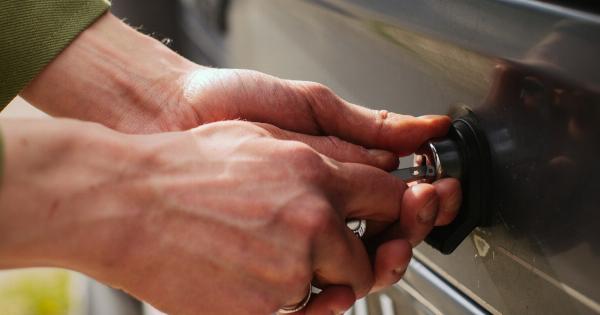One of the most common scenarios in relationships is the presence of a third wheel, someone who is not in the relationship but plays a significant role in how it plays out.
This third wheel can take different shapes and forms, but one of the most common ones is lust.
What is Lust?
Lust, simply put, is a strong desire or craving for something or someone. It is an intense feeling of sexual attraction or infatuation that is usually not tied to any emotional connection.
Lust is often characterized by a lack of control, and it can lead to impulsive actions that are not necessarily in line with one’s values or beliefs.
The Third Wheel of Lust in Relationships
When it comes to relationships, lust can play a very significant role as the third wheel. This can happen in different ways, but some of the most common scenarios include:.
Attraction to Someone Else
When one partner is strongly attracted to someone else, this can create a rift in the relationship. Even when the attraction is not acted upon, it can still cause tension and feelings of jealousy or insecurity.
The partner who is not the object of the attraction may feel neglected or unimportant, and this can lead to resentment and distance.
Infidelity
When one partner engages in sexual or romantic activities with someone else outside of the relationship, this is considered infidelity. Infidelity is often fueled by lust, and it can be devastating to the relationship.
Even when the infidelity is discovered and forgiven, the trust and intimacy in the relationship can take a long time to rebuild.
Pornography or Sexual Fantasies
When one partner is heavily into pornography or has strong sexual fantasies that do not involve the other partner, this can create a sense of distance and disconnection in the relationship.
The other partner may feel inadequate or undesirable, and this can lead to feelings of insecurity and resentment.
The Risks of Lust as the Third Wheel
When lust is the third wheel of a relationship, it can have many negative consequences. Some of the most common risks include:.
Damage to Trust and Intimacy
When one partner is strongly attracted to someone else or has a sexual infatuation, this can damage the trust and intimacy in the relationship. The other partner may feel betrayed or neglected, leading to a loss of connection and a sense of distance.
Jealousy and Resentment
Lust as the third wheel can also create jealousy and resentment between partners. The partner who feels neglected or replaced may become resentful of the other partner, leading to arguments and conflicts.
This can also create a sense of competition, with each partner trying to outdo the other in order to regain attention or affection.
Loss of Commitment and Loyalty
When one partner engages in infidelity or strong sexual desires, this can cause a loss of commitment and loyalty in the relationship.
The other partner may feel that they are not being valued or respected, leading to a sense of disillusionment and a lack of incentive to continue the relationship.
Overcoming Lust as the Third Wheel
Overcoming lust as the third wheel in a relationship can be challenging, but it is possible. Some of the most effective strategies include:.
Communicate
The first step in overcoming lust as the third wheel is to communicate openly and honestly with your partner. This includes talking about your feelings, desires, and fears, as well as setting clear boundaries and expectations.
Nurture Your Relationship
Another important step is to nurture your relationship by spending quality time together and strengthening your connection.
This can involve engaging in activities that you both enjoy, such as hobbies or travel, as well as creating opportunities for intimacy and emotional closeness.
Seek Support
If you are struggling with lust as the third wheel, seeking support from a trusted therapist or counselor can be very helpful.
Counseling can provide you with tools and strategies for overcoming negative patterns and creating a more fulfilling and satisfying relationship.
The Bottom Line
When lust is the third wheel in a relationship, it can create many negative consequences.
However, by communicating openly, nurturing your relationship, and seeking support, you can overcome these challenges and create a stronger and more fulfilling relationship.






















